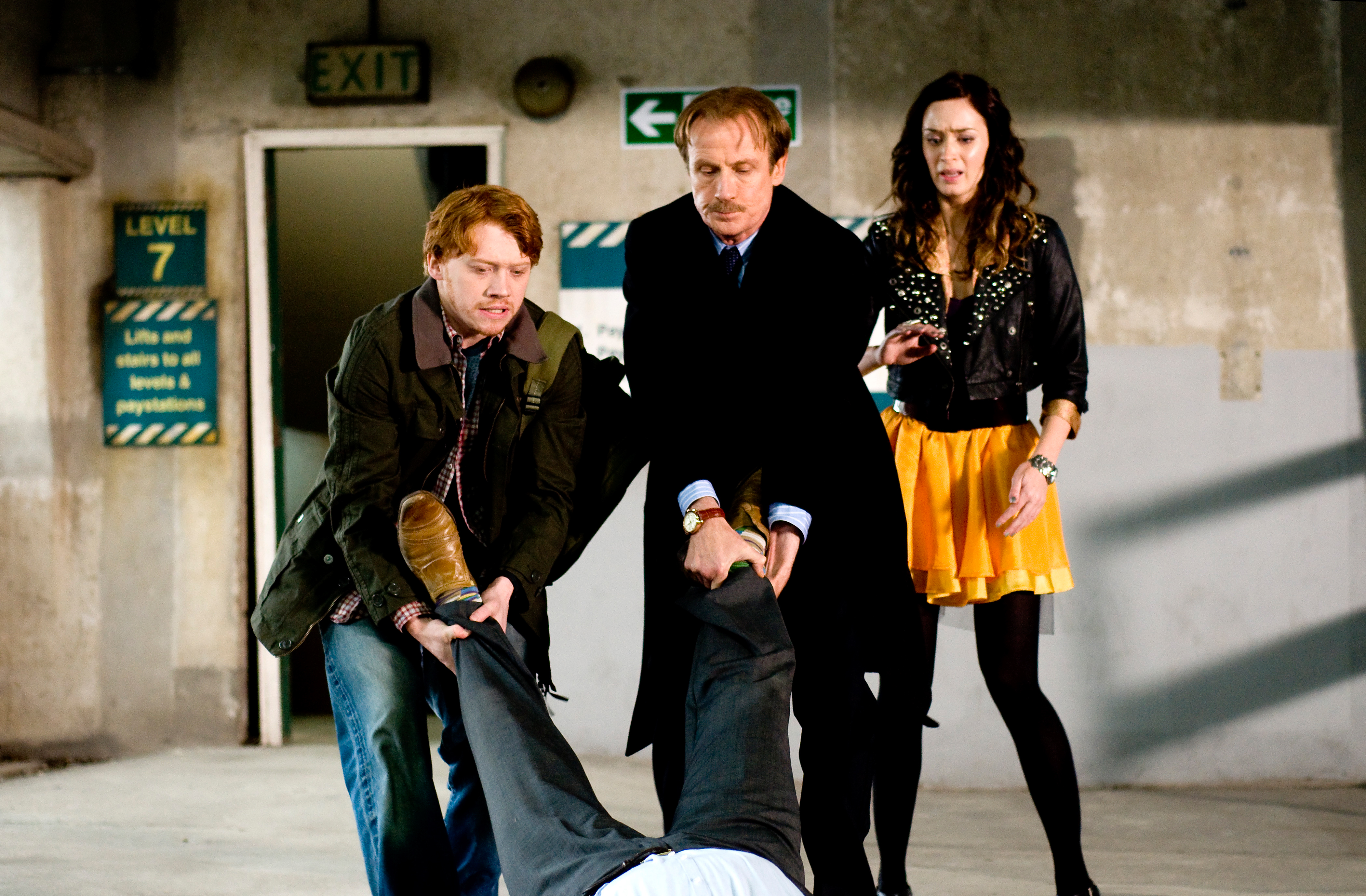Hitman comedies tend to be fairly morbid. Sometimes it’s intentional, and the killing is kept front and center to make us uncomfortable ““ after all, we often laugh more when we’re nervous. And sometimes it’s just an unavoidable side effect, because even if you brush it under the rug, it’s still on some level a movie about offing people.
For best results, then, stare death straight in the eye. And while you’re at it, let’s talk about sex, too ““ nothing is more ripe for awkward humor than the two greatest elephants in our collective rooms.
The hitman, of course, must be played by a master thespian, and in Jonathan Lynn’s “Wild Target,” we have two. The overwhelming star of the show is Bill Nighy as Victor Maynard, a neatly trimmed, supremely lonely, highly sophisticated assassin known as the very best in the business. His chief rival is the deliciously sociopathic Hector Dixon, played so wonderfully against type by Martin Freeman, best known as the John Krasinski counterpart in the British version of “The Office.”
Maynard’s meticulous routine is broken in spectacular fashion when he fails to take out Rose (Emily Blunt), a young, pretty and eternally conniving scam artist. After a series of ridiculous events, Maynard finds himself on the run with Rose and an astonishingly dim-witted young man named Tony (Rupert Grint).
The story of “Wild Target” is, more or less, Maynard’s attempt to keep his two new charges safe while coming to terms with his feelings for them.
Nighy is, as always, a fount of delightful weirdness.
Amid the crowded hall of fame of splendid British actors, fighting for space with Helen Mirren and Judi Dench and Michael Caine, his career has built a monument to the joy found in the off-beat, the quirky and the strange.
As Maynard, he makes music from mannerisms: his pursed lips, his awkward hand gestures, his excessively straight posture, his troubled expressions. It is because of this complete performance of awkwardness that “Wild Target” can explore to such an extent Maynard’s potential romantic interest in either one of the much younger people now under his care.
This is not to suggest that the film in any way attempts a serious look at sexuality.
Maynard considers the possibility that he might be gay because his mother (Eileen Atkins), wondering about his status as an older single man, asks him bluntly about it.
And the way he goes about investigating that question I will not spoil for you, because it is the movie’s hilarious high point.
There are many other high points in “Wild Target,” though they mostly occur on the level of wacky scenes.
The film is cast perfectly, without notable exception; Blunt fits naturally into her role as the vibrant, manipulative Rose, and Grint needs only to ratchet up the goofiness he’s been practicing as Ron Weasley in the “Harry Potter” series.
And Atkins nearly runs away with the movie herself as the overbearing mother determined to perpetuate the family business of killing for hire.
But “Wild Target” is somewhat erratic, as the title might suggest, and Lynn and his screenwriter Lucinda Coxon fail to build anything substantial out of all the film’s eccentricities.
There are great scenes and serviceable action sequences and the hint of character development, at least in the case of Maynard, but nothing grand or lasting.
Call me sentimental, but if I’m going to die in the end, even at the hands of Bill Nighy, I’d like for it to all mean something.
E-mail Goodman at agoodman@media.ucla.edu
